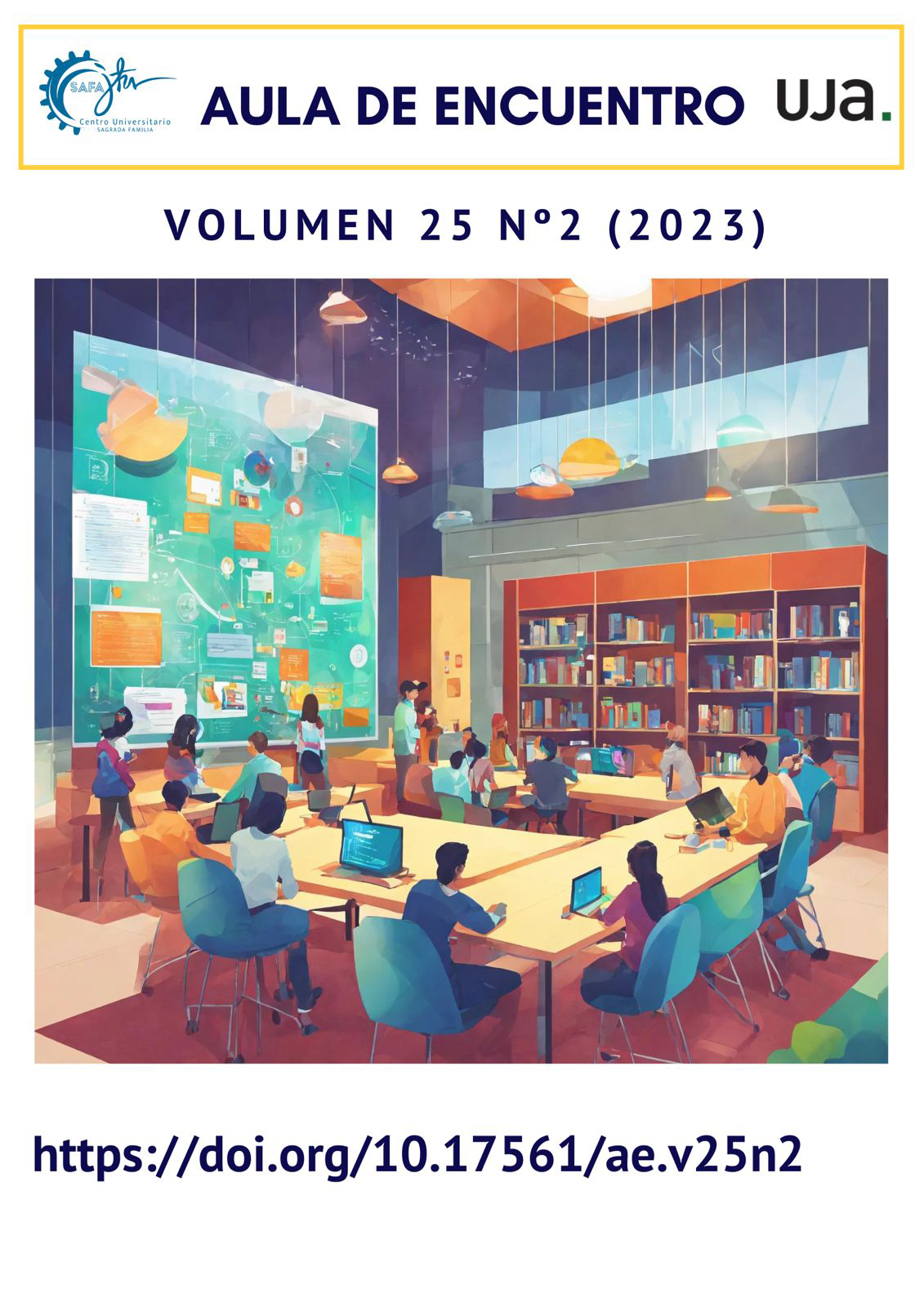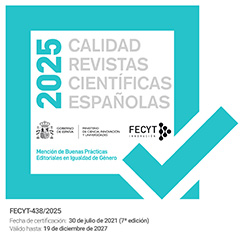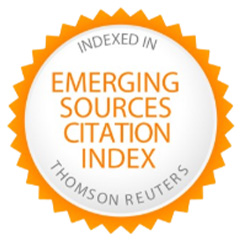Programas de intervención docente en competencias socioemocionales: una revisión sistemática de la literatura
DOI:
https://doi.org/10.17561/ae.v25n2.7391Palabras clave:
competencia socioemocional, programa de intervención, profesorResumen
En la literatura se promueven las intervenciones relacionadas con las competencias socioemocionales de los docentes, sin embargo, aún es incipiente la investigación respecto del efecto reportado en éstos. El presente estudio busca analizar la efectividad, aspectos de diseño y ejecución de los programas de intervención en competencias socioemocionales en docentes. El método utilizado fue una revisión sistemática de la literatura en las bases de datos Web of Science, Scopus y Eric de los últimos 10 años. La muestra que se obtuvo fue 4 investigaciones que cumplieron los criterios de inclusión. Los resultados muestran que los estudios se han desarrollado en Asia, con muestras menores a 200 participantes y se reportan positivos. Se identificaron variaciones en el tiempo de entrenamiento, metodologías y variables involucradas en el estudio. En conclusión, los programas de intervención en competencias socioemocionales tienen un efecto positivo en los docentes mejorando su percepción, comprensión, regulación emocional, empatía, eficacia y bienestar docente.
Descargas
Referencias
Arens, K., & Morin, A. (2016). Relations between teachers’ emotional exhaustion and students’ educational outcomes. Journal of Educational Psychology, 108(6), 800–813. https://doi.org/10.1037/edu0000105
Baer, R. A., Smith, G. T., Hopkins, J., Krietemeyer, J., & Toney, L. (2006). Using self-report assessment methods to explore facets of mindfulness. Assessment, 13(1), 27–45. https://doi-org.dti.sibucsc.cl/10.1177/1073191105283504
Bar-On, R. (2004). The Bar-On Emotional Quotient Inventory (EQ-i): Rationale, description and summary of psychometric properties. En Measuring emotional intelligence: Common ground and controversy, pp. 115-145 Nova Science Publishers.
Barrientos-Fernández, A., Sánchez-Cabrero, R., & Pericacho-Gómez, F. (2020). Competencias sociales y emocionales del profesorado de educación infantil y su relación con la gestión del clima de aula. Estudios Sobre Educacion, 38, 59–78. https://doi-org/10.15581/004.38.59-78
Castillo-Gualda, R., García, V., Pena, M., Galán, A., & Brackett, M. (2017). Preliminary findings from RULER approach in Spanish teachers’ emotional intelligence and work engagement. Electronic Journal of Research in Educational Psychology, 15(3), 641–664. https://doi.org/10.14204/ejrep.43.17068
Cohen, S., Kamarck, T., & Mermelstein, R. (1983). A global measure of perceived stress. Journal of Health and Social Behavior, 24, 385–396.
Collie, R. (2019). The development of social and emotional competence at school: an integrated model. International Journal of Behavioral Development, 44(1), 1–12. https://doi.org/10.1177/0165025419851864
Conroy, M. A., Sutherland, K. S., Algina, J., Ladwig, C., Werch, B., Martinez, J., Jessee, G., & Gyure, M. (2019). Outcomes of the BEST in CLASS intervention on teachers’ use of effective practices, self-efficacy, and classroom quality. School Psychology Review, 48(1), 31–45. https://doi.org/10.17105/SPR-2018-0003.V48-1
Coşkun, K., & Öksüz, Y. (2019). Impact of emotional literacy training on students’ emotional intelligence performance in primary schools. International Journal of Assessment Tools in Education, 6(1), 36–47. https://doi.org/10.21449/ijate.503393
Davis, M. H. (1980). A multidimensional approach to individual differences in empathy. JSAS Catalog of Selected Documents in Psychology, 10, 85–102.
De Souza, L., & Carbonero, M. (2019). Formación inicial docente y competencias emocionales: análisis del contenido disciplinar en universidades brasileñas. Educação e Pesquisa, 45, 1–16. https://doi.org/10.1590/s1678-4634201945186508
Domitrovich, C., Bradshaw, C., Berg, J., Pas, E., Becker, K., Musci, R., Embry, D., & Ialongo, N. (2016). How Do School-Based Prevention Programs Impact Teachers? Findings from a Randomized Trial of an Integrated Classroom Management and Social-Emotional Program. Prevention Science, 17(3), 325–337. https://doi.org/10.1007/s11121-015-0618-z
Durlak, J. A., Dymnicki, A. B., Taylor, R. D., Weissberg, R. P., Schellinger, K. B., Dubois, D& O’brien, M. U. (2017). Collaborative for Academic, Social, and Emotional Learning. CASEL.
Esen-Aygun, H., & Sahin-Taskin, C. (2017). Teachers’ Views of Social-Emotional Skills and Their Perspectives on Social-Emotional Learning Programs. Journal of Education and Practice, 8(7), 205-215.
Extremera, N., & Fernández-Berrocal, P. (2009). Test de Inteligencia Emocional de Mayer Salovey Caruso. Madrid: TEA Ediciones.
Gil, R. (2018). La formación docente: Horizontes y rutas de innovación. Clacso. https://otrasvoceseneducacion.org/archivos/300440
Grant, A. M. (2007). Enhancing coaching skills and emotional intelligence through training. Industrial and Commercial Training, 39(5), 257–266. https://doi.org/10.1108/00197850710761945
Greenberg, M. T., Jennings, P. A., & Goodman, B. (2010). The interpersonal mindfulness in teaching scale. University Park, PA: Pennsylvania State University.
Hen, M., & Sharabi-Nov, A. (2014). Teaching the teachers: emotional intelligence training for teachers. Teaching Education, 25(4), 375–390. https://doi.org/10.1080/10476210.2014.908838
Jennings, P. A., Brown, J. L., Frank, J. L., Doyle, S., Oh, Y., Davis, R. et al., (2017). Impacts of the CARE for teachers program on teachers’ social and emotional competence and classroom interactions. Journal. Educational Psychology 109, 1010–1028. https://doi.org/10.1037/edu0000187
Jennings, P., Doyle, S., Oh, Y., Rasheed, D., Frank, J., & Brown, J. (2019). Long-term impacts of the CARE program on teachers’ self-reported social and emotional competence and well-being. Journal of School Psychology, 76, 186–202. https://doi.org/10.1016/j.jsp.2019.07.009
Karimzadeh, M., Goodarzi, A., & Rezaei, S. (2012). The effect of social emotional skills training to enhance general health & emotional intelligence in the primary teachers. Social and Behavioral Sciences, 46(46), 57-64.http://dx.doi.org/10.1016/j.sbspro.2012.05.068
Karimzadeh, M., Salehi, H., Embi, M., Nasiri, M., & Shojaee, M. (2014). Teaching efficacy in the classroom: skill based training for teachers’ empowerment. English Language Teaching, 7(8), 106–115. https://doi.org/10.5539/elt.v7n8p106
Knigge, M., Krauskopf, K., & Wagner, S. (2019). Improving socio-emotional competencies using a staged video-based learning program? results of two experimental studies. Frontiers in Education, 4(142), 1–12. https://doi.org/10.3389/feduc.2019.00142
Kruml, S. M., & Yockey, M. D. (2011). Developing the emotionally intel- ligent leader: Instructional issues. Journal of Leadership and Organizational Studies, 18(2), 207–215. https://doi.org/10.1177/1548051810372220
Lozano-Peña, G., Sáez, F., López, Y., & Mella, J. (2021). Teachers’ social – emotional competence: History, concept, models, instruments, and recommendations for educational quality. Sustainability, 13(21), 1–26. https://doi.org/10.3390/su132112142.
Lozano-Peña, G. M., Sáez-Delgado, F. M., & López-Angulo, Y. (2022). Competencias socioemocionales en docentes de primaria y secundaria: una revisión sistemática. Páginas de Educación, 15(1), 1-22. https://doi.org/10.22235/pe.v15i1.2598.
Luo, L., Reichow, B., Snyder, P., Harrington, J., & Polignano, J. (2020). Systematic eeview and meta-enalysis of classroom-wide social–emotional interventions for preschool children. Topics in Early Childhood Special Education, 00(0), 1–16. https://doi.org/10.1177/0271121420935579
Maiors, E., Dobrean, A., & Păsărelu, C. R. (2020). Teacher rationality, social-emotional competencies and basic needs satisfaction: Direct and indirect effects on teacher burnout. Journal of Evidence-Based Psychotherapies, 20(1), 135–152. https://doi.org/10.24193/jebp.2020.1.8
Maslach, C., & Jackson, S. E. (1986). Maslach burnout inventory: Manual. Palo Alto, CA: Consulting Psychologists Press.
Maslach, C., Jackson, S., y Leiter, M. P. (1996). Maslach Burnout Inventory (3rd ed.). Palo Alto, CA: Consulting Psychologists Press (Versión en castellano). Madrid: TEA Ediciones.
Murano, D., Way, J. D., Martin, J. E., Walton, K. E., Anguiano-Carrasco, C., & Burrus, J. (2019). The need for high-quality pre-service and inservice teacher training in social and emotional learning. Journal of Research in Innovative Teaching & Learning, 12(2), 111-113. https://doi.org/10.1108/JRIT-02-2019-0028
Oliveira, S., Roberto, M. S., Veiga-Simão, A. M., & Marques-Pinto, A. (2021). A meta-analysis of the impact of social and emotional learning interventions on teachers’ burnout symptoms. Educational Psychology Review, 12, 1–19. https://doi.org/10.1007/s10648-021-09612-x
Page, M. J., McKenzie, J. E., Bossuyt, P. M., Boutron, I., Hoffmann, T. C., Mulrow, C. D., Shamseer, L., Tetzlaff, J. M., Akl, E. A., Brennan, S. E., Chou, R., Glanville, J., Grimshaw, J. M., Hróbjartsson, A., Lalu, M. M., Li, T., Loder, E. W., Mayo-Wilson, E., McDonald, S., … Moher, D. (2021). The PRISMA 2020 statement: An updated guideline for reporting systematic reviews. The BMJ, 372(71), 1–9. https://doi.org/10.1136/bmj.n71
Poulou, M. (2018). Students’ emotional and behavioral difficulties: The role of teachers’ social and emotional learning and teacher-student relationships. International Journal of Emotional Education, 9(2), 146–153. https://eric.ed.gov/?id=EJ1197559
Puertas Molero, P., Ubago Jiménez, J. L., Moreno Arrebola, R., Padial Ruz, R., Martínez Martínez, M. A., & González Valero, G. (2018). La inteligencia emocional en la formación y desempeño docente: una revisión sistemática. REOP - Revista Española de Orientación y Psicopedagogía, 29(2), 128–142. https://doi.org/10.5944/reop.vol.29.num.2.2018.23157
Raes, F., Pommier, E., Neff, K. D., & Van Gucht, D. (2011). Construction and factorial validation of a short form of the self-compassion scale. Clinical Psychology & Psychotherapy, 18(3), 250–255. https://doi-org.dti.sibucsc.cl/10.1002/cpp.702
Rodríguez-Ledo, C., Orejudo-Hernández, S., Celma-Pastor, L., & Cardoso-Moreno, M. (2018). Improving social-emotional competencies in the secondary education classroom through the SEA program. Electronic Journal of Research in Educational Psychology, 16(3), 681–701. https://doi.org/10.25115/ejrep.v16i46.2241
Rodriguez, V., Solis, L., Mascio, B., Gouley, K., Jennings, P., & Brotman, L. (2020). With awareness comes competency: the five awarenesses of teaching as a framework for understanding teacher social-emotional competency and well-being. Early Education and Development, 31(7), 1–33. https://doi.org/10.1080/10409289.2020.1794496
Rubiales, J., Russo, D., Paneiva, J., & González, R. (2018). Revisión sistemática sobre los programas de entrenamiento socioemocional para niños y adolescentes de 6 a 18 años publicados entre 2011 y 2015. Revista Costarricense de Psicología, 37(2), 163–186. https://doi.org/10.22544/rcps.v37i02.05
Sánchez-Teruel, David, & Robles-Bello, María Auxiliadora. (2018). Instrumentos de evaluación en inteligencia emocional: una revisión sistemática cuantitativa. Perspectiva Educacional, 57(2), 27-50. https://dx.doi.org/10.4151/07189729-vol.57-iss.2-art.712
Schaufeli, W. B., Salanova, M., González-Romá, V., y Bakker, A. B. (2002). The measurement of engagement and burnout: A two sample confirmatory factor analytic approach. Journal of Happiness Studies, 3(1), 71-92. doi: 10.1023/A:1015630930326
Schonert-Reichl, K. (2017). Social and emotional learning and teachers. The Future of Children, 27(1), 137–155. https://www.jstor.org/stable/44219025
Schutte, N. S., Malouff, J. M., Hall, L. E., Haggerty, D. J., Cooper, J. T., Golden, C. J., &Dornheim, L. (1998). Development and validation of a measure of emotional intelligence. Personality and Individual Differences, 25, 167–177.
Serrano-Díaz, N., Pocinho, M., & Aragón-Mendizábal, E. (2017). Competencias emocionales y síndrome de burnout en el profesorado de Educación Infantil. Journal of Psychology and Education, 13(1), 1-15. https://doi.org/10.23923/rpye2018.01.153
Spielberger, C. D., Gorsuch, R. L., & Lushere, R. E. (1970). SAT1 manual for the state-trait anxiety inventory. Palo Alto, CA: Consulting Psychologist Press.
Tapia, C., & Cubo, S. (2017). Habilidades sociales relevantes: percepciones de múltiples actores educativos. Revista Internacional de Investigación en Educación, 133-148. https://www.redalyc.org/pdf/2810/281052678007.pdf
Tarrasch, R., Berger, R., & Grossman, D. (2020). Mindfulness and compassion as key factors in improving teacher’s well Being. Mindfulness, 11(4), 1049–1061. https://doi.org/10.1007/s12671-020-01304-x
Torrijos F., Martín I., & Rodríguez C. (2018). La educación emocional en la formación permanente del profesorado no universitario. Profesorado, Revista De Currículum Y Formación Del Profesorado, 22(1), 579-597. https://doi.org/10.30827/profesorado.v22i1.9943
Trapnell, P. D., & Campbell, J. D. (1999). Private self-consciousness and the five-factor model of personality: Distinguishing rumination from reflection. Journal of Personality and Social Psychology, 76(2), 284–304. https://doi-org/10.1037/0022-3514.76.2.284
Tschannen-Moran, M., & Woolfolk Hoy, A. (2001). Teacher efficacy: Capturing an elusive construct. Teaching and Teacher Education, 17(7), 783–805. https://doi-org/10.1016/S0742-051X(01)00036-1
Wei, D. D., & Qiu, L. X. (2014). Personalized Resources Recommendation System Design for Teachers Training. In Applied Mechanics and Materials, 644, 5765-5768.
Whitehead, J., & Suave, J. (2018). The importance of teacher well-being and social and emotional learning: A Literature Review Prepared for Millennium.org. https://static1.squarespace.com/static/59dd06ba8a02c73de886b306/t/5c33d5041ae6cfcc025322a1/1546900742535/Importance+of+Teacher+Well-Being+and+Social+Emotional+Learning.pdf
Wigelsworth, M., Lendrum, A., Oldfield, J., Scott, A., ten Bokkel, I., Tate, K., & Emery, C. (2016). The impact of trial stage, developer involvement and international transferability on universal social and emotional learning programme outcomes: a meta-analysis. Cambridge Journal of Education, 46(3), 347–376. https://doi.org/10.1080/0305764X.2016.1195791
Zych, I., & Llorent, V. J. (2020). An intervention program to enhance social and emotional competencies in pre-service early childhood education teachers. Psychology, Society, & Education, 12(1), 17-30. https://doi.org/10.25115/psye.v10i1.2374
Publicado
Número
Sección
Licencia
Derechos de autor 2023 Carolina Contreras-Saavedra, Gissela Lozano-Peña, Fabiola Sáez-Delgado, Yaranay López- Angulo, Javier Mella-Norambuena, Valentina Ramos-Huenteo

Esta obra está bajo una licencia internacional Creative Commons Atribución 4.0.
Los autores que publican en esta revista están de acuerdo con los siguientes términos:
- Los autores conservan los derechos de autor y garantizan a la revista el derecho de ser la primera publicación del trabajo al igual que licenciado bajo una Creative Commons Attribution License que permite a otros compartir el trabajo con un reconocimiento de la autoría del trabajo y la publicación inicial en esta revista.
- Los autores pueden establecer por separado acuerdos adicionales para la distribución no exclusiva de la versión de la obra publicada en la revista (por ejemplo, situarlo en un repositorio institucional o publicarlo en un libro), con un reconocimiento de su publicación inicial en esta revista.
- Se permite y se anima a los autores a difundir sus trabajos electrónicamente (por ejemplo, en repositorios institucionales o en su propio sitio web) antes y durante el proceso de envío, ya que puede dar lugar a intercambios productivos, así como a una citación más temprana y mayor de los trabajos publicados (Véase The Effect of Open Access) (en inglés).
![]()
Este obra está bajo una licencia de Creative Commons Reconocimiento 4.0 Internacional.















